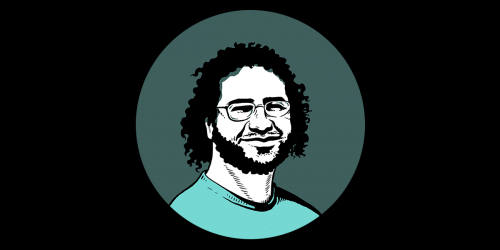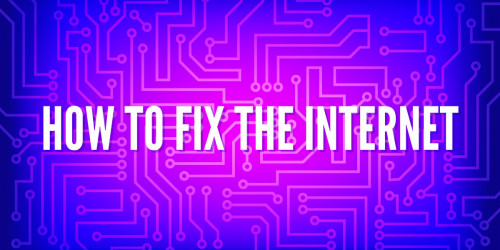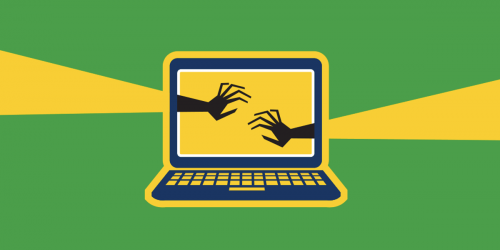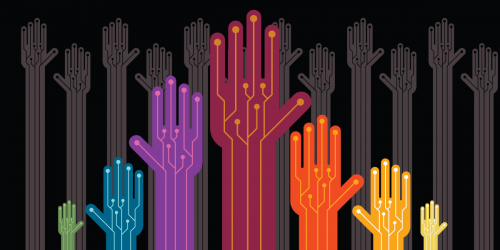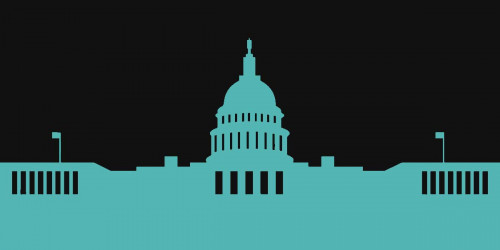As the year draws to a close, EFF is looking back at the major trends influencing digital rights in 2011 and discussing where we are in the fight for a free expression, innovation, fair use, and privacy.
For several years, discussions about global Internet freedom have focused primarily on what are widely considered the world’s two most restrictive countries: China and Iran. But while China’s ‘Great Firewall’ is indeed the most sophisticated system of censorship and Iran’s persecution of bloggers unprecedented, the Arab world--the 22 Arabic-speaking states and territories stretching from Morocco to Saudi Arabia--is the most Internet-restrictive region on earth.
In 2010, four Arab countries (Syria, Tunisia, Egypt, and Saudi Arabia) were named to Reporters Without Borders’ Enemies of the Internet list, while two more (the UAE and Bahrain) were designated as ‘under surveillance.’ Freedom House’s Freedom on the Net 2011 report (released early in the year) saw two of the region’s countries (Tunisia and Egypt) slide backwards, and The OpenNet Initiative claimed in their most recent regional report that “Internet censorship in the Middle East and North Africa is on the rise, and the scope and depth of filtering are increasing.” Meanwhile, a glance at the Threatened Voices project’s map shows China and Iran immediately followed by Egypt and Tunisia when it comes to repression of bloggers.
Therefore, when Egyptians and Tunisians kicked off 2011 with a bang, ousting entrenched leaders Hosni Mubarak and Zine El Abidine Ben Ali, observers were hopeful that the two countries--both of whose pro-democracy movements had strong contingencies of free expression advocates--would move in the right direction toward Internet freedom.
A Constant Struggle
Now, almost a year later, Tunisia’s Internet is freer than ever before, despite some struggles, but Egypt seems headed down a dark path, trying at least 12,000 civilians in military courts since January, among them numerous bloggers and social media users. Just this month, Maikel Nabil Sanad was sentenced to two years in prison for insulting the military on his blog. Prominent blogger and activist Alaa Abd El Fattah spent two months behind bars on ludicruous charges. And in October, Ayman Youssef Mansour was sentenced to three years in prison for a comment he made on Facebook about Islam.
Egypt is not alone in its struggle. In fact, throughout the region, Internet freedom has been on a backslide in 2011, from the emergence of digital armies created to conduct attacks against pro-democracy activists to the chilling news of new surveillance systems built with technology--and sometimes complicity--from Western companies.
Syria in particular has suffered; when, in February, the regime unblocked several social networking sites, some activists were hopeful for reform. But as the year went on, and Syria strengthened its crackdown on netizens, that hope disappeared. Today, numerous bloggers and journalists are in jail; most recently, prominent blogger Razan Ghazzawi--one of the few Syrian bloggers to blog under their real name--was arrested while en route to attend a conference in neighboring Jordan on freedom of the press.
Glimmers of Hope
But despite the new and continued threats to Internet freedom, the ‘Arab Spring’ has brought with it increased activism for a free and open Internet. Transnational networks have formed to help disseminate information in the case of Internet shutdowns or censorship and to assist bloggers in need. To the latter point, the region’s blogging community has banded together on campaigns for Sanad, Ghazzawi, Abd El Fattah and numerous others, ensuring that their voices aren’t silenced.
2011 has also seen the emergence of new rights groups throughout the region. In democratic Tunisia, Nawaat--a mainstay on the free expression scene--has registered as an official organization and are joined by the brand-new L’Association Tunisienne des Libertés Numériques (Tunisian Association for Digital Freedom). In Egypt, the Arab Digital Expression Foundation was created this year to support alternative media, citizen journalism and other information technology projects, and the Engine Room, of which the EFF is a strategic partner, seeks to help activists harness new technologies safely. And just last week, yet another new organization was born: the Arab Network for Freedom of Expression (ANFEX), a Tunisian-Palestinian partnership, will work on reforming laws to protect freedom of expression throughout the region.
Numerous existing organizations--such as Egypt’s Arabic Network for Human Rights Information (ANHRI) and the Syrian Center for Media and Freedom of Expression--have increased their online focus this year as well, noting the growing threats to Internet freedom.
In another positive development, international groups have begun taking to task the Western companies responsible for selling surveillance tools to the region’s despots. In October, the International Federation for Human Rights, along with its French member Ligue des Droits de l'Homme et du Citoyen (LDH) filed a criminal complaint against Amesys, a French company that knowingly entered into an agreement with the Libyan government in 2007 to provide technology used to intercept communication, among other functions. In that same month, the European Parliament passed a resolution to bar overseas sales of surveillance technology. In December, Wikileaks and Privacy International released a treasure trove of data exposing the international trade in surveillance technology, gleaned from trade shows. And EFF--along with more than a dozen other groups--actively continues to advocate for companies to consider human rights when making sales to governments (our “Know Your Customer” standards, released in October, set the groundwork for companies looking to do so).
All in all, 2011 has been a mixed bag for the region, but one thing is certain: The spirit of the revolutions that has swept so many countries this year will not be forgotten in 2012. And EFF will continue to support netizens in the Arab world and everywhere as they continue their fight for freedom.
